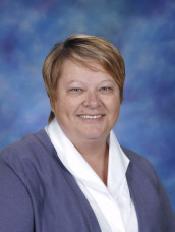
REFLECT: 365
Why can’t I tell everyone the bitter truth about their
performance?
Before I answer that question, I must address another – should
I tell everyone the bitter truth about their performance and, if I do, will it
make things better?
I will start by saying there are absolutely times when the
direct, bitter truth is necessary. When
someone’s performance becomes toxic to their colleagues, when their behavior is
not in the best interests of our students, when their actions begin to harm the
overall environment, there is nothing to do but confront the behavior and put a
stop to it. Stopping this kind of
behavior will absolutely make things better.
But what about the rest of us, the vast majority of us who
spend our days doing our level best? Sometimes
we are great, sometimes good enough and sometimes not quite up to par. Who among us hasn’t looked in the mirror at
the end of a given day and been thankful they weren’t judged by that day’s
performance? If we are faced with the
bitter truth about our shortcomings, does it make us better? I think that depends on how that news is
delivered and the quality of the relationship between the people involved.
On the evaluation front, relationships can be a double-edged
sword. In order to truly help someone
improve his or her performance, that work needs to be done in a highly trusting
relationship. No matter how valid the
point or well-intentioned the effort, if there isn’t an established base of
trust, the message, and any hope of significant improvement is lost. The other side of the blade is that same
relationship may make it difficult to be honest – because we know the truth may
result in hurt feelings and changed relationships. It is impossible for most of us to do this
work without developing deep connections with our colleagues. The most difficult honest conversations are
with those to whom we have the closest connections. And this is what makes us avoid them.
If I’m honest with myself, I find it much easier to deliver
the bitter truth to staff members at the beginning of their careers. They come to us primed for that
conversation. They have just spent years
teaching in front of an audience and then breaking down their performance to
its basic elements. They know they have
room to grow and are eager to hone their skills, eager for any feedback they
can get.
Veteran staff present a much bigger challenge. Long-standing relationships, years of habits
– good and bad, and the “this is how I’ve always done it” mindset can present major
roadblocks to the bitter truth. Many of
these teachers have developed stellar reputations in the school and the
community. The pride of a successful
teaching career can be easily wounded by the suggestion that some areas may
need improvement. The fear of wounding
that pride, of de-valuing their hard work makes most of us want to shy away
from the conversation. Yet, if we expect
our teachers to grow and, in turn, our students to achieve, these should be
some of our most critical conversations.
In the end, no matter how much we would like to avoid the bitter
truth, it will come to light.
Performance issues are rarely as private as we would like to
believe. Parents, students and
colleagues are well aware when things aren’t going well. The only question is – will that bitter truth
come to light in the controlled environment of professional conversation and
evaluation or in the middle of conflict or controversy? Addressing these ‘bitter truths’ in a
context of support and relationship affords us the opportunity for a successful,
respectful outcome. Avoiding them sets
us all up for failure.

Cece
Coffey is the principal of Churchill School in Homewood, Illinois. She
has a bachelor's degree in elementary education from Valparaiso University, a
master's degree from National Louis University in Early Childhood Leadership
and Advocacy and did her administrative coursework at Loyola University. She
has most recently served as Region Director for South Cook IPA and is a trained
S.E.E.D. (Seeking Educational Equity and Diversity) facilitator.
Reflect with us.